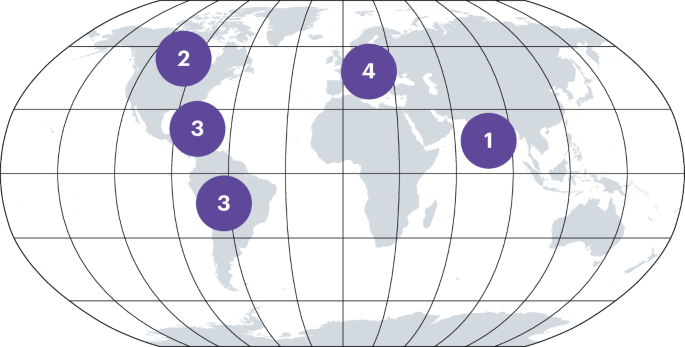- Research Highlight
- Published:
Genetic engineering
volume 43, page 501 (2025)Cite this article
Genetically modifying human mitochondrial DNA (mtDNA) is challenging when generating large-scale deletions — a common cause of mitochondrial diseases — owing to the absence of double strand break repair machinery in mitochondria. Writing in Cell, Fu et al. describe a method to modulate large mtDNA deletions in human cells by co-expressing end-joining machinery from Mycobacterium or T4 bacteriophage with targeted endonucleases, providing insights into the underlying mechanisms of mitochondrial disease.
The presence of both normal and mutated mtDNA within cells, known as heteroplasmy, is decisive in mitochondrial disease as the proportion of mutated mtDNA dictates the severity of disease manifestation. To model mtDNA deletions at defined heteroplasmy levels, the authors co-expressed end-joining machinery with the restriction enzyme Scal in epithelial cells, resulting in a panel of cells with mtDNA deletions of around 3.5 kilobases. In-depth characterization of these cells revealed a critical threshold of about 75% heteroplasmy, beyond which cells showed impaired oxidative phosphorylation and reduced cell growth with a loss of TCA cycle metabolites and aspartate levels. Single-cell sequencing detected two nuclear gene expression programs that were deregulated with increased heteroplasmy, revealing a threshold-triggered response and a gradual heteroplasmy-sensing network. The functional relevance of such gene network disruptions should be studied further.
This is a preview of subscription content, access via your institution
Access options
Access Nature and 54 other Nature Portfolio journals
Get Nature+, our best-value online-access subscription
24,99 € / 30 days
cancel any time
Subscribe to this journal
Receive 12 print issues and online access
195,33 € per year
only 16,28 € per issue
Buy this article
- Purchase on SpringerLink
- Instant access to full article PDF
Prices may be subject to local taxes which are calculated during checkout
Rights and permissions
About this article
Cite this article
Marchal, I. Engineering mitochondrial DNA deletions in human cells improves disease modeling.
Nat Biotechnol 43, 501 (2025). https://doi.org/10.1038/s41587-025-02652-6
-
Published:
-
Issue Date:
-
DOI: https://doi.org/10.1038/s41587-025-02652-6




















